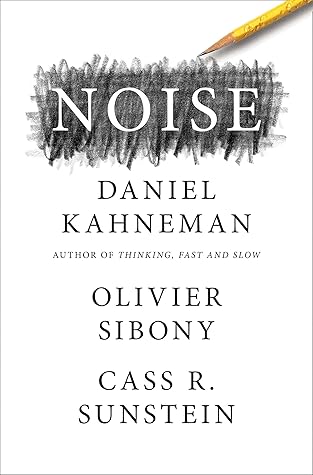More on this book
Community
Kindle Notes & Highlights
We can live comfortably with colleagues without ever noticing that they actually do not see the world as we do.
you are not the same person at all times.
you are not always the same person, and you are less consistent over time than you think. But somewhat reassuringly, you are more similar to yourself yesterday than you are to another person today.
social influences are a problem because they reduce “group diversity without diminishing the collective error.” The irony is that while multiple independent opinions, properly aggregated, can be strikingly accurate, even a little social influence can produce a kind of herding that undermines the wisdom of crowds.
Complexity and richness do not generally lead to more accurate predictions.
Equal-weight models do well because they are not susceptible to accidents of sampling.
Confidence is no guarantee of accuracy, however, and many confident predictions turn out to be wrong.
Statistical terms are often misleading to the lay reader, and “significant” may be the worst example of this. When a finding is described as “significant,” we should not conclude that the effect it describes is a strong one. It simply means that the finding is unlikely to be the product of chance alone.
our sense of understanding the world depends on our extraordinary ability to construct narratives that explain the events we observe.
Where causality is plausible, our mind easily turns a correlation, however low, into a causal and explanatory force.


